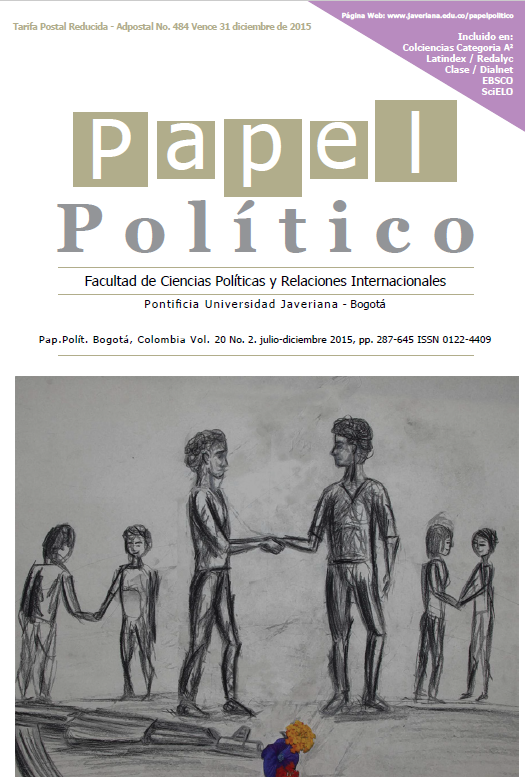Resumen
En la transición hacia un estado “pos-acuerdos de paz” en Colombia se crean unos escenarios particulares en los cuales el modelo universal de la Justicia Transicional, implementado a través de la política pública, en este caso la de la restitución de tierras, se encuentra con diversos elementos de lo local. Esto es entendido no sólo en su acepción material de tierra y territorio, sino como una perspectiva desde la cual se conjugan discursos sobre la sociedad campesina, la familia, el género, la justicia y el desarrollo. En el siguiente texto analizamos los (des)encuentros entre los diferentes discursos de género, con miras a la capacidad transformadora de la Ley de Víctimas y Restitución de Tierras, en materia de justicia de género. Para el análisis se emplea el concepto de fricciones, que nos permitirá ver las interacciones complejas, los conflictos ocultos y los resultados ambiguos, pero también las nuevas posibilidades de agencia.
Esta revista científica se encuentra registrada bajo la licencia Creative Commons Reconocimiento 4.0 Internacional. Por lo tanto, esta obra se puede reproducir, distribuir y comunicar públicamente en formato digital, siempre que se reconozca el nombre de los autores y a la Pontificia Universidad Javeriana. Se permite citar, adaptar, transformar, autoarchivar, republicar y crear a partir del material, para cualquier finalidad (incluso comercial), siempre que se reconozca adecuadamente la autoría, se proporcione un enlace a la obra original y se indique si se han realizado cambios. La Pontificia Universidad Javeriana no retiene los derechos sobre las obras publicadas y los contenidos son responsabilidad exclusiva de los autores, quienes conservan sus derechos morales, intelectuales, de privacidad y publicidad.
El aval sobre la intervención de la obra (revisión, corrección de estilo, traducción, diagramación) y su posterior divulgación se otorga mediante una licencia de uso y no a través de una cesión de derechos, lo que representa que la revista y la Pontificia Universidad Javeriana se eximen de cualquier responsabilidad que se pueda derivar de una mala práctica ética por parte de los autores. En consecuencia de la protección brindada por la licencia de uso, la revista no se encuentra en la obligación de publicar retractaciones o modificar la información ya publicada, a no ser que la errata surja del proceso de gestión editorial. La publicación de contenidos en esta revista no representa regalías para los contribuyentes.


